The world is experiencing rapid urbanization and industrialization, this process has not only enhanced the progress of urban civilization, but also extensively and deeply threatened the urban environment, as well as regional and global life supporting system and ecosystem services, it is a paramount mission for modern cities to seek a socio-economically as well as ecologically harmonious urban society, meanwhile, achieve civilized transformation and innovation.
After extensive and in-depth communications and discussions, conference participants realized that the environmental risk and the opportunities for the fast developing cities, have achieved a common understanding that under the background of economic globalization, further adapt the principles and methods of ecopolis building in rapid growing cities is needed.
I. Rapid ecopolis construction should consist of the following five facets:
Eco Research: facilitate academic exchanges and intellectual integration in the researches on urbanization, enhance integrated and systematic researches in multidisciplinary, cross-regional and cross-sectional circumstances.
Eco Planning: convert human-centered urban planning concept into an interactive urban eco planning system between eco-services and human needs, further facilitate the transformation of current urban planning mechanism as well as system renovation towards healthy planning and technology for eco-system.
Eco Management: change technology-prioritized traditional management mode and encourage the concept of innovative eco-management- prioritization.
Eco Construction: optimise the economic growth mode by developing circular economy and ecological industry, and emphasis systematic management on sustainable resource utilization and life cycle of products. disseminate and promote urban eco-engineering and technologies, lead the eco-construction towards eco-service oriented urban buildings, transportation, materialization of the waste and landscape design.
Eco Education: promote urban eco-education through eco-culture innovation, apprehend correctly every citizen to understand the interrelation of human and nature in cities as well as the eco-responsibility of human, lead the transition of traditional urban consumption, through cross-sectional cooperation, enhance community education, school education as well as occupational education, internet education as well as educational program organized by NGOs, to achieve a favorable urban eco-learning atmosphere.
II. To construct an adaptive and livable city in its rapid growing process, the following activities are needed to take:
Through various international co-operations among governments, enterprises and voluntary groups, to establish global organizations that are specialized in key eco-questions researches, communications, training and technology dissemination, prioritize and organize relevant international cooperation on multidisciplinary research plan and technical training program for ecopolis.
Focus on international cooperation on rapid growing ecopolis, select globally representative cities for researches, integration as well as disseminations on ecopolis planning and its experiences and technologies, facilitate interactive and cooperative activities among countries, to accelerate mutual development on economic globalization as well as ecological globalization; establish general information platform, facilitate interactive support on ecopolis construction experiences and methods, specially between the developed and developing countries.
Focus on spatial sprawl problems in rapid growing cities, promote eco-control prioritized urban space construction model, seek solutions on urban sprawl–a common phenomena found in rapid growing cities–through planning, technologies and management.
Focus on population scale in rapid growing cities, shape the population scale through rational analysis in eco-fragile areas, sensitive zones, regional life-support system and bearing capacities. Meanwhile, improve the life quality of the population, scientifically manage urban population structure and its trends.
Focus on rapid growing mountain cites and the eco-construction problems, mountain cities have their representations and characteristics, further improve the managerial system establishment on population scale and its distributions in mountain city functions and spatial orders of infrastructures, eco fragility and carrying capacity, eco education.
Focus on the metabolism issues of rapid growing cities, through eco design and eco project technology R&D, set up a technical system, which should deal with urban water conservation, renewable energy and sustainable resource utilization, recycle and reuse the waste materials, alleviate heat island effect, ecosystem restoration, urban landscape integration, urban traffic flow as well as optimized adjustment on material flow in different countries and regions.
Focus on eco-education and eco-management in rapid growing cities, improve public capacity on ecopolis construction, actively encourage urban communities and public to participate in ecopolis management, planning and construction, establish participatory learning mechanism for eco-education. Promote mechanism innovation and demonstration projects, and include management of eco-services and eco-land-use into relevant priority policy making for ecopolis building, facilitate establishment of ecopolis managerial institutions among countries, countries and regions, and among regions.
International Council on Ecopolis Development (IntEcopolis) was initiated at the Fifth International Eco-city Conference in 2002 at Shenzhen of China by delegates from SCOPE/ICSU, Society for Human Ecology (SHE), International Ecological Engineering Society (IEES), International Society for Ecology (INTECOL), Ecocity Builder (ECOCITY) and International Society for City and Regional Planners (ISoCaRP), International Council on Ecopolis Development (IntEcopolis) was established in Sept. 2006.



Sorry, the comment form is closed at this time.